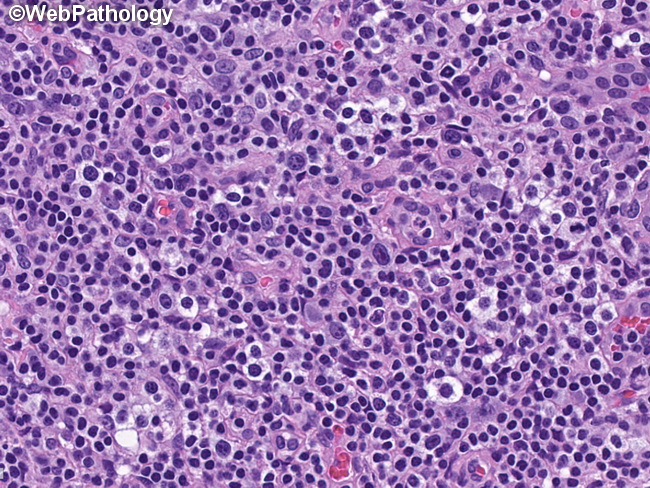AITL : Molecular Genetics


Comments:
Molecular Genetics of Angioimmunoblastic T-cell lymphoma (AITL): AITL shows clonal rearrangement of T cell receptor genes in 75% of cases. In 25% to 30% of cases, there is rearrangement of immunoglobulin heavy chain (IGH) or light-chain genes in addition to the rearrangements of TCR genes. About 7% of cases show clonal rearrangements of IGH genes alone. The IGH gene rearrangements are secondary to clonal proliferation of EBV-infected B cells in AITL. Chromosomal aberrations have been detected in almost 90% of AITL cases. The most frequent abnormalities include trisomy 3, trisomy 5, and an extra copy of X chromosome. Between 11% and 25% of AITL cases lack clonal rearrangement of TCR genes or cytogenetic abnormalities. Gene expression profiling studies have revealed that VEGF is overexpressed in AITL. This is what causes proliferation of arborizing high endothelial venules - a diagnostic hallmark of AITL. Anti-angiogenic drugs (bevacizumab, thalidomide) have been successfully used in AITL not responding to conventional therapies. A number of somatic mutations have been observed in AITL. They include: TET2 (47% to 82%), DNMT3A (33%), RHOA (70%) and IDH2 (20% to 30%). The image shown here is a higher magnification of the previous image showing small to medium-sized neoplastic lymphocytes with round nuclei, clear cytoplasm, and well-defined cytoplasmic borders. They are admixed with histiocytes and dendritic cells.



